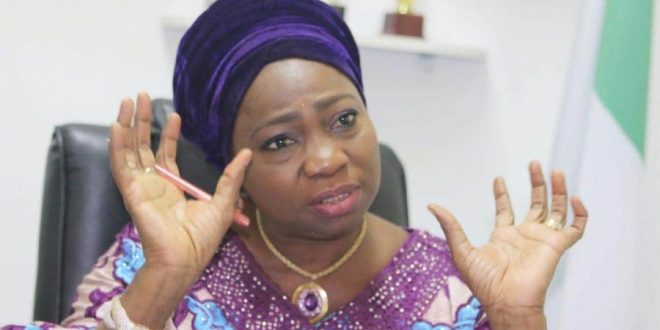The Chairman/CEO of the Nigerians in Diaspora Commission (NIDCOM), Abike Dabiri-Erewa, has revealed that over 5,000 Nigerian women are currently stranded in Iraq. These women were sent as caregivers but have found themselves trapped in harsh and exploitative conditions.
Dabiri-Erewa made this disclosure during a seminar in Lagos titled, “Sensitisation and Advocacy Program for Promoting Diaspora Investment Potentials in South-West Nigeria.” The event, organized by NIDCOM in collaboration with G-Consulting International Services Limited, brought together participants from the six South-West states to discuss investment opportunities in Nigeria.
Tragic Cases of Stranded Nigerians
While addressing the gathering, Dabiri-Erewa recounted a tragic case involving a Nigerian man who sent his wife to Iraq to work as a caregiver. Sadly, the woman died under mysterious circumstances.
“As I speak with you today, there are about 5,000 women stranded in Iraq. Just last week, I dealt with a case where a husband sent his wife to Iraq as a caregiver. She’s dead,” Dabiri-Erewa said.
She explained that the Nigerian Mission is working to bring back the deceased woman’s remains and conduct an autopsy to determine the cause of death. “The husband is devastated and doesn’t know where to start. We had to intervene to ensure the body is returned home,” she added.
Opportunities in Nigeria
The NIDCOM boss emphasized the importance of exploring local opportunities rather than seeking greener pastures abroad at all costs. She noted that while challenges exist in Nigeria, there are untapped investment potentials in every region of the country.
“This workshop is part of our effort to train and educate Nigerians on the opportunities available for investment within the country. It will be replicated across other geopolitical zones to encourage Diaspora investment,” she explained.
Mixed Migration Trends
Dabiri-Erewa highlighted the contrasting migration trends, noting that while some Nigerians are leaving the country in search of better opportunities, African Americans are tracing their roots to Nigeria and seeking to invest.
“Just yesterday, we received 14 people who traced their roots to Nigeria through DNA testing. They are Fulani, Igbo, Yoruba, and from other ethnic groups. Many of them are asking, ‘Where is my village?’ They want to return home and invest in Nigeria,” she said.
She urged Nigerians to focus on producing goods and services to strengthen the local economy. “We keep talking about the dollar, but the real issue is production. If we’re not producing anything, we can’t keep complaining,” Dabiri-Erewa concluded.
This revelation serves as a call for Nigerians to weigh the risks of migration carefully and consider the opportunities that lie within the country.
 National Telescope national telescope newspaper
National Telescope national telescope newspaper



